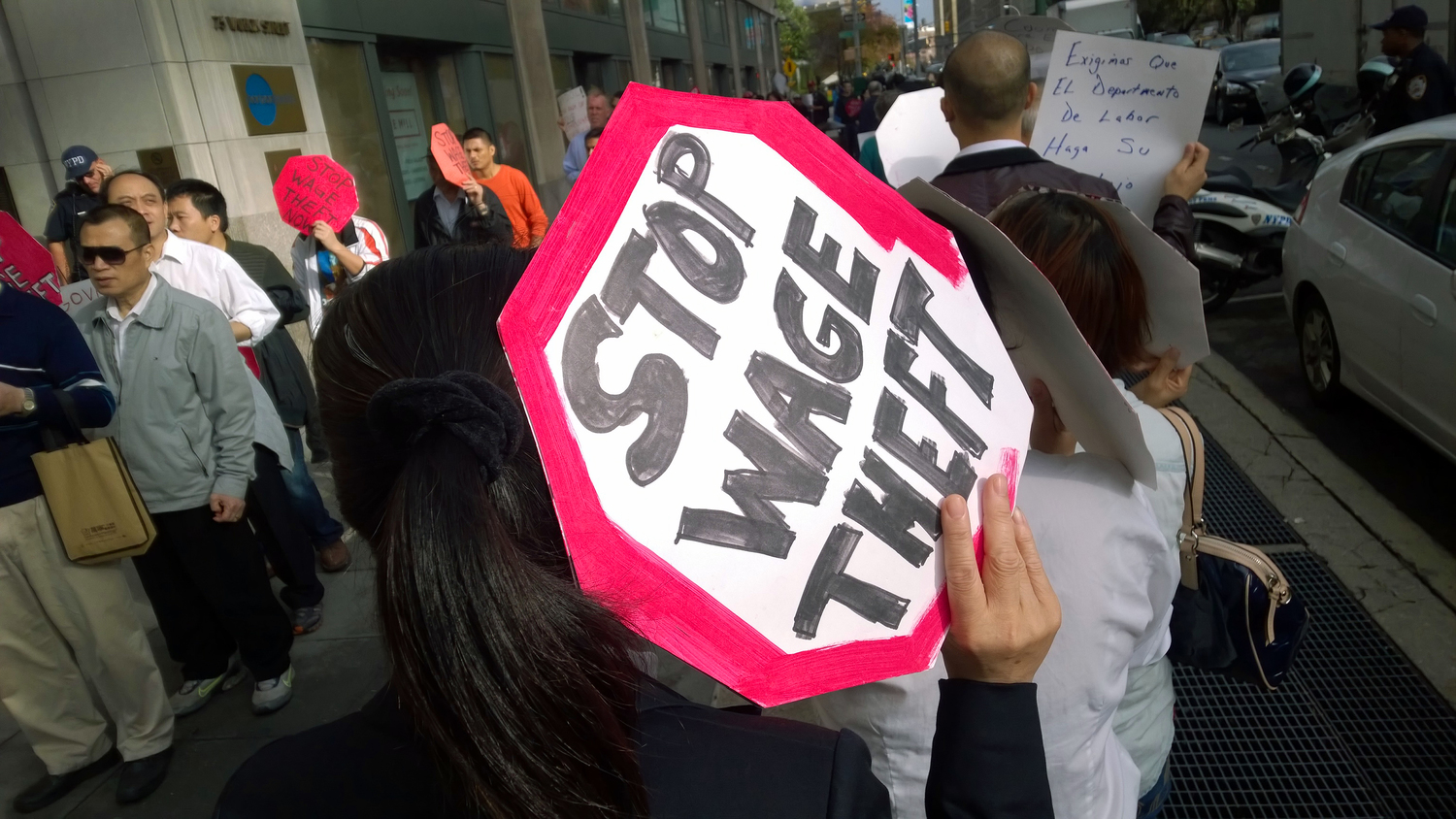By David Cooper and Teresa Kroeger
For the past four decades, the majority of American workers have been shortchanged by economic policymaking that has suppressed the growth of hourly wages and prevented greater improvements in living standards. Achieving a secure, middle-class lifestyle has become increasingly difficult as hourly pay for most workers has either stagnated or declined. For millions of the country’s lowest-paid workers, financial security is even more fleeting because of unscrupulous employers stealing a portion of their paychecks. In Michigan, one out of every 20 of the state’s 2.8 million minimum wage eligible workers is being short-changed by their employers. In 2015, according to the recent study published by the non-partisan Economics Policy Institute, the Michigan minimum wage worker lost an average of $63 dollars per week in stolen wages, and a total of $429 million in unpaid wages went unpaid to 130,000 minimum wage workers in the state.
Wage theft, the practice of employers failing to pay workers the full wages to which they are legally entitled, is a widespread and deep-rooted problem that directly harms millions of U.S. workers each year. Employers refusing to pay promised wages, paying less than legally mandated minimums, failing to pay for all hours worked, or not paying overtime premiums deprives working people of billions of dollars annually. It also leaves hundreds of thousands of affected workers and their families in poverty. Wage theft does not just harm the workers and families who directly suffer exploitation; it also weakens the bargaining power of workers more broadly by putting downward pressure on hourly wages in affected industries and occupations. For many low-income families who suffer wage theft, the resulting loss of income forces them to rely more heavily on public assistance programs, unduly straining safety net programs and hamstringing efforts to reduce poverty.
Researchers have long known that measuring wage theft is challenging—it takes many forms, violations are not always recognized or reported, and suitable public data sources are limited. Yet in recent years, several studies have attempted to better quantify the harm caused by wage theft. This study adds to those efforts by using data from the Current Population Survey to assess the prevalence and magnitude of wage theft in the form of minimum wage violations—i.e., workers being paid at an effective hourly rate below the binding minimum wage. We look specifically at instances of such wage theft in the 10 most populous U.S. states: California, Florida, Georgia, Illinois, Michigan, New York, North Carolina, Ohio, Pennsylvania, and Texas.
- The total underpayment of wages to these workers amounts to over $8 billion annually. If the findings for these states are representative for the rest of the country, they suggest that the total wages stolen from workers due to minimum wage violations exceeds $15 billion each year.
- Workers suffering minimum wage violations are underpaid an average of $64 per week, nearly one-quarter of their weekly earnings. This means that a victim who works year-round is losing, on average, $3,300 per year and receiving only $10,500 in annual wages.
- Young workers, women, people of color, and immigrant workers are more likely than other workers to report being paid less than the minimum wage, but this is primarily because they are also more likely than other workers to be in low-wage jobs. In general, low-wage workers experience minimum wage violations at high rates across demographic categories. In fact, the majority of workers with reported wages below the minimum wage are over 25 and are native-born U.S. citizens, nearly half are white, more than a quarter have children, and just over half work full time.
What is wage theft?
Wage theft is the failure to pay workers the full wages to which they are legally entitled. Wage theft can take many forms, including but not limited to:
- Minimum wage violations: Paying workers less than the legal minimum wage
- Overtime violations: Failing to pay nonexempt employees time-and-a-half for hours worked in excess of 40 hours per week
- Off-the-clock violations: Asking employees to work off-the-clock before or after their shifts
- Meal break violations: Denying workers their legal meal breaks
- Pay stub and illegal deductions: Taking illegal deductions from wages or not distributing pay stubs
- Tipped minimum wage violations: Confiscating tips from workers or failing to pay tipped workers the difference between their tips and the legal minimum wage
- Employee misclassification violations: Misclassifying employees as independent contractors to pay a wage lower than the legal minimum
The Fair Labor Standards Act (FLSA), enacted in 1938, established the basic protections that have governed work in the United States since the Great Depression. With regard to pay, the FLSA “put a floor under wages and a ceiling over hours” through the creation of the federal minimum wage and provisions for overtime pay—i.e., a limit on the hours per week employees may work without receiving additional compensation (Roosevelt 1938).
Many states provide stronger protections or expanded coverage beyond the FLSA in state law. For example, California’s minimum wage—in addition to being significantly higher than the federal minimum wage—covers nearly 100 percent of workers in the state. Other states, such as Michigan, have enacted higher wage standards yet allow a greater number of exemptions than the FLSA.
The study concludes that 17.2 percent of Michigan’s minimum wage workers are experiencing minimum wage violations and women are more likely than men to experience minimum wage violations.

